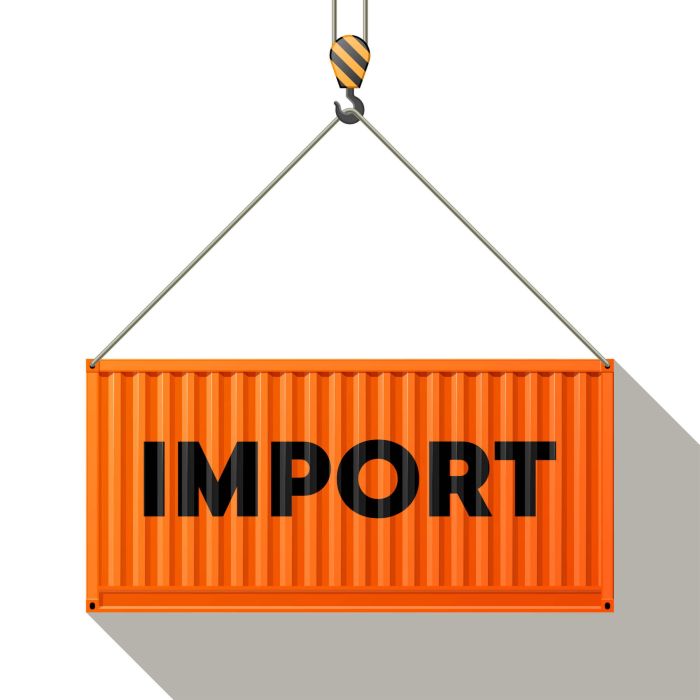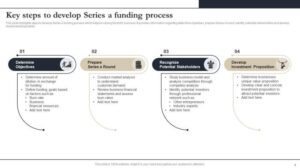
Import-export compliance is a crucial aspect of international trade that ensures businesses adhere to various regulations and standards. Understanding the intricate web of compliance requirements can not only protect your business from penalties but also enhance your reputation in global markets. This overview highlights the fundamental principles, the importance of compliance, and the challenges faced by businesses navigating the complexities of international trade regulations.
Compliance goes beyond mere adherence to laws; it’s about creating a sustainable and ethical business environment that fosters trust and accountability. As we delve deeper, we’ll explore regulatory frameworks, compliance procedures, and innovative strategies that can help businesses thrive in an increasingly interconnected world.
Import-Export Compliance Overview
The world of international trade is governed by a complex web of regulations and standards that ensure businesses operate fairly and responsibly. Understanding import-export compliance is crucial for companies engaged in global markets, as it encompasses the legal requirements for transporting goods across borders. This section will delve into the fundamental principles of compliance, highlight its importance, and identify common challenges businesses face.
Fundamental Principles of Import-Export Compliance
Import-export compliance is built on several key principles aimed at promoting lawful trade practices. These include adherence to local and international laws, accurate documentation, and ethical sourcing of goods. Companies must familiarize themselves with specific regulations that pertain to their industry and operating regions.
Importance of Compliance in International Trade
Compliance is not just a legal obligation; it’s a cornerstone of trust in international trade. Maintaining compliance can lead to enhanced reputation, increased customer loyalty, and reduced operational risks. Non-compliance can result in hefty fines, legal penalties, and damage to company reputation.
Common Challenges Faced by Businesses
Many businesses encounter hurdles that complicate compliance, including:
- Complexity of regulations across different countries.
- Rapidly changing trade laws and tariffs.
- Insufficient awareness or training among employees.
- High costs associated with compliance processes.
Regulatory Framework

Navigating the regulatory landscape is essential for effective import-export compliance. This section provides insights into the key regulations and the role of international organizations in shaping compliance standards.
Key Regulations Governing Import-Export Compliance
Several regulations govern international trade, including the Customs Modernization Act and Export Administration Regulations (EAR). These regulations provide guidelines on the necessary procedures for importing and exporting goods legally and ethically.
Role of International Organizations in Compliance Standards
Organizations like the World Trade Organization (WTO) and the International Chamber of Commerce (ICC) play pivotal roles in establishing and promoting compliance standards globally. They provide frameworks that help businesses align with best practices in international trade.
Implications of Non-Compliance for Businesses
The ramifications of non-compliance can be severe. Companies risk facing:
- Financial penalties and legal actions.
- Increased scrutiny from regulatory bodies.
- Loss of business opportunities and partnerships.
- Reputational damage that can affect customer trust.
Compliance Procedures
Adhering to compliance procedures is essential for businesses engaged in import-export activities. This section Artikels standard procedures and documentation requirements.
Standard Procedures for Compliance
Businesses should establish clear procedures to ensure compliance, including regular audits, training programs, and documentation checks. Each step must be meticulously followed to mitigate risks and ensure adherence to laws.
Checklist for Import-Export Compliance Documentation Requirements
Having the right documentation in place is crucial for compliance. Here’s a checklist to guide businesses:
- Import/export licenses.
- Commercial invoices.
- Packing lists.
- Shipping documents (bills of lading, airway bills).
- Customs declarations.
Examples of Successful Compliance Strategies
Some businesses have successfully navigated compliance challenges by implementing robust strategies such as:
- Utilizing technology for tracking and managing compliance documentation.
- Engaging in continuous training for employees regarding compliance changes.
- Forming partnerships with compliance experts for tailored guidance.
Business Innovation in Compliance
Innovation plays a significant role in enhancing compliance processes. This section explores the technologies and strategies that facilitate better compliance management.
Innovative Technologies that Enhance Compliance Processes

Technological advancements such as blockchain, artificial intelligence, and data analytics are revolutionizing compliance. These tools improve transparency, accuracy, and efficiency in compliance management.
Case Studies of Businesses with Innovative Compliance Solutions
Several businesses have successfully adopted innovative solutions to streamline their compliance efforts. For example, a logistics company used blockchain technology to ensure traceability and accountability in its supply chain, significantly reducing compliance-related discrepancies.
How Innovation Can Reduce Compliance Costs and Risks
Implementing innovative technologies can drastically lower compliance costs by automating processes and minimizing human errors. Moreover, these innovations enable real-time monitoring, reducing the risk of non-compliance.
International Business and Compliance
Cultural differences significantly influence compliance practices in international business. This section addresses the challenges and strategies for navigating these differences.
Impact of Cultural Differences on Compliance Practices
Cultural nuances can affect perceptions of compliance. Understanding these differences is vital for businesses operating in diverse markets to ensure effective compliance strategies.
Navigating Compliance in Various International Markets
Businesses must adapt their compliance approaches based on the specific regulations and cultural contexts of each market they enter. This includes thorough research and potentially local partnerships to enhance compliance adherence.
Key Factors When Entering New International Markets
When exploring new markets, companies should consider:
- Local regulations and compliance requirements.
- Understanding cultural expectations regarding business practices.
- Establishing relationships with local compliance experts.
Business Management and Compliance
Management plays a crucial role in ensuring compliance within organizations. This section discusses the responsibilities and methods for fostering a culture of compliance.
Role of Management in Ensuring Compliance
Effective leadership is essential for fostering a culture of compliance. Management must prioritize compliance in their strategies and decisions, demonstrating commitment to adherence.
Methods for Training Staff on Compliance Protocols
Training programs should be developed to educate staff about compliance protocols. Regular workshops, online courses, and seminars can enhance employees’ understanding and commitment to compliance.
Best Practices for Maintaining Compliance in Daily Operations
To maintain compliance in everyday operations, businesses should:
- Implement routine audits and assessments.
- Encourage open communication about compliance concerns.
- Recognize and reward compliance achievements among staff.
Risk Management in Compliance
Identifying and managing risks associated with non-compliance is critical for businesses. This section Artikels potential risks and strategies for mitigating them.
Potential Risks Associated with Non-Compliance
Non-compliance can expose businesses to various risks, including financial losses, legal penalties, and operational disruptions. Understanding these risks is the first step in risk management.
Strategies for Mitigating Compliance-Related Risks
To mitigate compliance risks, businesses can adopt strategies such as:
- Conducting regular compliance audits.
- Developing a risk management framework.
- Engaging in ongoing employee training and awareness programs.
Framework for Conducting Compliance Risk Assessments
A well-structured compliance risk assessment framework includes:
- Identifying compliance risks specific to the business.
- Evaluating the likelihood and impact of each risk.
- Prioritizing risks based on potential impact.
- Developing action plans to address high-priority risks.
Workplace Communication and Compliance
Clear communication is vital in compliance efforts. This section discusses strategies for effective communication regarding compliance.
Importance of Clear Communication in Compliance Efforts
Effective communication ensures that all team members understand compliance expectations and their roles in maintaining compliance. It fosters a proactive culture of compliance across the organization.
Guide for Effective Internal Communication Regarding Compliance
To facilitate effective internal communication about compliance:
- Establish regular compliance meetings.
- Utilize intranet platforms for sharing compliance updates.
- Encourage feedback from employees on compliance issues.
Tips for Fostering a Culture of Compliance
Fostering a culture of compliance requires:
- Integrating compliance discussions into everyday conversations.
- Recognizing compliance achievements publicly.
- Encouraging employees to report compliance concerns without fear.
Business Networking for Compliance Resources
Networking can significantly enhance compliance knowledge and resources. This section explores the benefits of networking within the compliance community.
Benefits of Networking for Compliance Information
Networking allows businesses to share best practices, gain insights into compliance challenges, and access valuable resources from professionals within the compliance community.
Key Organizations and Forums for Compliance Networking
Several organizations provide platforms for compliance networking, including:
- Society of Corporate Compliance and Ethics (SCCE).
- International Compliance Association (ICA).
- Local chambers of commerce and trade associations.
Strategies for Building Relationships with Compliance Experts
To build effective relationships with compliance experts:
- Attend industry conferences and workshops.
- Participate in online forums and discussion groups.
- Engage with compliance professionals on LinkedIn.
Business Outsourcing and Compliance
Outsourcing can have significant compliance implications. This section discusses how businesses can navigate compliance while outsourcing.
Compliance Implications of Outsourcing Import-Export Functions
Outsourcing import-export functions may expose businesses to compliance risks if third-party vendors do not adhere to necessary regulations. Ensuring that these vendors are compliant is crucial.
Selecting Compliant Third-Party Vendors
When selecting third-party vendors, businesses should:
- Conduct thorough due diligence on vendor compliance history.
- Require compliance certifications and documentation.
- Establish clear compliance expectations in contracts.
Monitoring Compliance of Outsourced Services
Monitoring compliance among outsourced services involves:
- Regular audits of vendor compliance practices.
- Maintaining open communication with vendors regarding compliance updates.
- Implementing compliance metrics to evaluate vendor performance.
Team Building for Compliance Awareness
Building a strong team culture around compliance is essential for success. This section discusses activities and initiatives that promote compliance awareness.
Team-Building Activities that Promote Compliance Culture
Engaging team-building activities can foster a culture of compliance, such as:
- Compliance workshops and training sessions.
- Group discussions on compliance scenarios and problem-solving.
- Incentive programs for compliance-driven achievements.
Framework for Collaborative Compliance Initiatives among Teams
A collaborative approach to compliance can be structured by:
- Encouraging cross-departmental projects focused on compliance improvements.
- Establishing compliance champions within each team.
- Regularly sharing compliance updates and challenges across teams.
Examples of Successful Teamwork Leading to Enhanced Compliance
Many organizations have seen improved compliance outcomes through teamwork. For instance, a manufacturing company increased compliance adherence by forming a cross-functional compliance team that addressed regulatory challenges collectively.
Sales Management and Compliance
Sales teams play a critical role in maintaining compliance. This section explores how compliance impacts sales strategies.
Role of Sales Teams in Maintaining Compliance
Sales teams must understand compliance requirements as they directly impact customer interactions and sales strategies. Their adherence to compliance is essential for maintaining company reputation.
Impact of Compliance on Sales Strategies in International Markets
In international markets, compliance significantly influences sales strategies. Companies must ensure that sales tactics align with local regulations to avoid legal issues.
Tips for Training Sales Staff on Compliance Issues
Training sales staff on compliance can be achieved through:
- Regular briefings on compliance expectations and updates.
- Role-playing scenarios that highlight compliance issues in sales.
- Providing resources and materials for ongoing learning.
Marketing Strategies for Compliance Awareness
Raising awareness around compliance within the industry can enhance a company’s reputation. This section discusses marketing plans focused on compliance themes.
Marketing Plan to Promote Compliance within the Industry
An effective marketing plan may include:
- Highlighting compliance efforts in marketing materials.
- Hosting webinars or workshops on compliance topics.
- Collaborating with industry influencers to promote compliance best practices.
Communicating Compliance Benefits to Customers
It’s important to communicate how compliance benefits customers:
- Emphasizing trust and reliability in product offerings.
- Highlighting commitment to ethical practices and sustainability.
- Demonstrating compliance standards in marketing campaigns.
Examples of Marketing Campaigns Focused on Compliance Themes
Several companies have successfully launched marketing campaigns centered on compliance, showcasing their commitment through customer stories, sustainability efforts, and transparent practices.
Ending Remarks
In conclusion, navigating import-export compliance is essential for any business looking to engage in international trade. By understanding regulations, implementing effective procedures, and fostering a culture of compliance, businesses can mitigate risks and seize opportunities in global markets. Staying informed and adaptable is key to ensuring long-term success and maintaining a competitive edge.
FAQ Corner
What is import-export compliance?
Import-export compliance refers to the adherence to laws and regulations governing international trade, ensuring that businesses operate within legal frameworks.
Why is compliance important in international trade?
Compliance is vital to avoid penalties, ensure smooth transactions, and maintain a positive reputation in global markets.
What are common challenges businesses face with compliance?
Common challenges include navigating complex regulations, understanding cultural differences, and managing compliance documentation effectively.
How can technology aid in compliance processes?
Innovative technologies can streamline compliance procedures, enhance data accuracy, and reduce costs associated with compliance management.
What role does management play in ensuring compliance?
Management is responsible for establishing compliance protocols, training staff, and fostering a culture of compliance within the organization.



